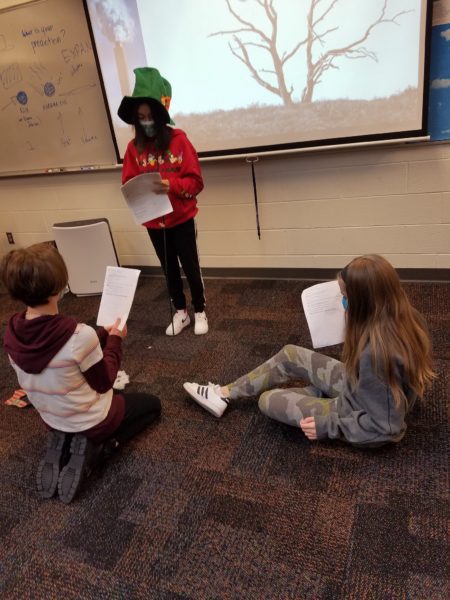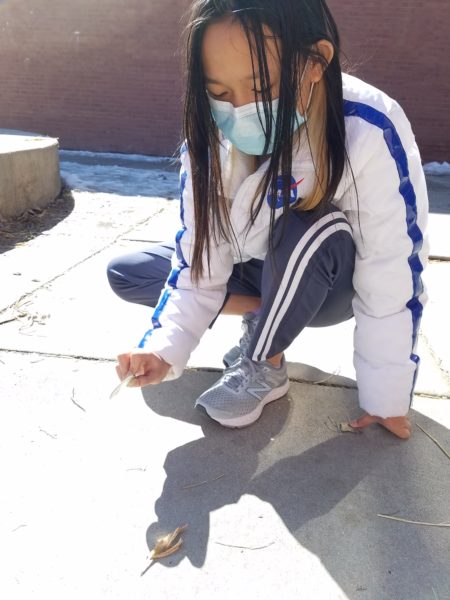
Fun fact: Did you know that the main pollinator for potatoes is the bumble bee?
We celebrated lesser-known pollinators on our usually asynchronous Monday by cooking recipes that highlight those pollinators’ contributions to the culinary world. Students logged in from home and made homemade mashed potatoes (bumblebees) and from-scratch hot cocoa (fly family)
Fun fact: Monarch butterflies are dependent on milkweed plants for their survival. They lay their eggs on them and their larvae eat the leaves, which makes them toxic to birds even through adulthood.
On Tuesday we made origami seedling pots and planted butterfly and bee-friendly seeds. The seedlings will grow in our classroom until it’s time to plant them outside at the end of the school year. One of the plants we planted is showy milkweed Asclepias speciosa, which was harvested in Ms. Angel’s yard. Then we used the inside of the old milkweed pods to start fires with our fire lenses. We could get flames in less than 5 seconds!
Fun fact: There are over 950 species of solitary bees in Colorado. Solitary bees are bees that don’t nest in colonies. Solitary bees are egalitarian – there are no queens and every female is fertile.
Solitary bees often like to nest in holes in wood or masonry or in the ground. In order to give solitary bees like mason bees and leafcutter bees safe homes, on Wednesday we made bee houses to put outside our homes.

On Thursday we made a display of native butterfly species for the hallway. We made beautiful, life-size 3D models of each species using recycled plastic we rescued from our recycling bins. The resulting butterflies were almost photo-realistic and we really got to know the species by painting the markings.
Un-fun fact: Did you know that common pesticides called neonicotinoids are a major cause of colony collapse disorder and that our honey bees are in real trouble?
On Friday we made up an active outdoor game that also included students who were learning from home. The home learners directed the blindfolded, disoriented “bees” to tag the flowers and then safely make it back to the hive. Though the topic was somber, the game was hilarious and a great way to cap off a successful pollinator week!
Written by AMS CAP Instructor Erin Angel
See more photos from the course here!
CAP at Angevine Middle School is made possible in part by a grant from Great Outdoors Colorado (GOCO) through the Nature Kids/Jovenes de la Naturaleza program. Click here to learn more!
